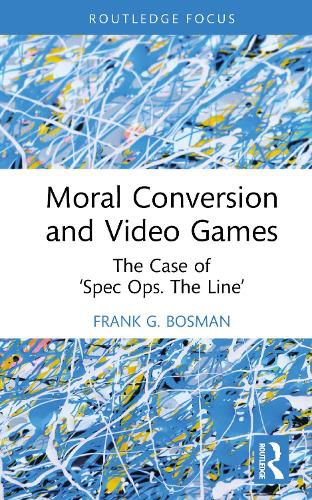Readings Newsletter
Become a Readings Member to make your shopping experience even easier.
Sign in or sign up for free!
You’re not far away from qualifying for FREE standard shipping within Australia
You’ve qualified for FREE standard shipping within Australia
The cart is loading…






Moral Conversion and Video Games is an in-depth exploration of Spec Ops: The Line, a critically acclaimed video game that subverts its genre by confronting players with the psychological and moral consequences of war.
Disguised as a standard third-person shooter, the game gradually reveals a dark, self-critical narrative in which the player's choices, though seemingly free, lead to horrifying outcomes, most notably a white phosphorus attack on civilians. Praised for its story, aesthetic, and philosophical depth, the game has been interpreted as a critique of glorified violence, American exceptionalism, and the illusion of meaningful choice in video games. Its use of cognitive and ludo-narrative dissonance forces players to reflect on their own complicity in virtual violence. The game's mirrored reference to Raphael's Sistine Madonna, recast as a burned mother and child, deepens its ethical and even theological resonance.
This insightful and in-depth study will interest researchers and students of video game studies, moral philosophy, and cultural theology.
$9.00 standard shipping within Australia
FREE standard shipping within Australia for orders over $100.00
Express & International shipping calculated at checkout
Stock availability can be subject to change without notice. We recommend calling the shop or contacting our online team to check availability of low stock items. Please see our Shopping Online page for more details.
Moral Conversion and Video Games is an in-depth exploration of Spec Ops: The Line, a critically acclaimed video game that subverts its genre by confronting players with the psychological and moral consequences of war.
Disguised as a standard third-person shooter, the game gradually reveals a dark, self-critical narrative in which the player's choices, though seemingly free, lead to horrifying outcomes, most notably a white phosphorus attack on civilians. Praised for its story, aesthetic, and philosophical depth, the game has been interpreted as a critique of glorified violence, American exceptionalism, and the illusion of meaningful choice in video games. Its use of cognitive and ludo-narrative dissonance forces players to reflect on their own complicity in virtual violence. The game's mirrored reference to Raphael's Sistine Madonna, recast as a burned mother and child, deepens its ethical and even theological resonance.
This insightful and in-depth study will interest researchers and students of video game studies, moral philosophy, and cultural theology.